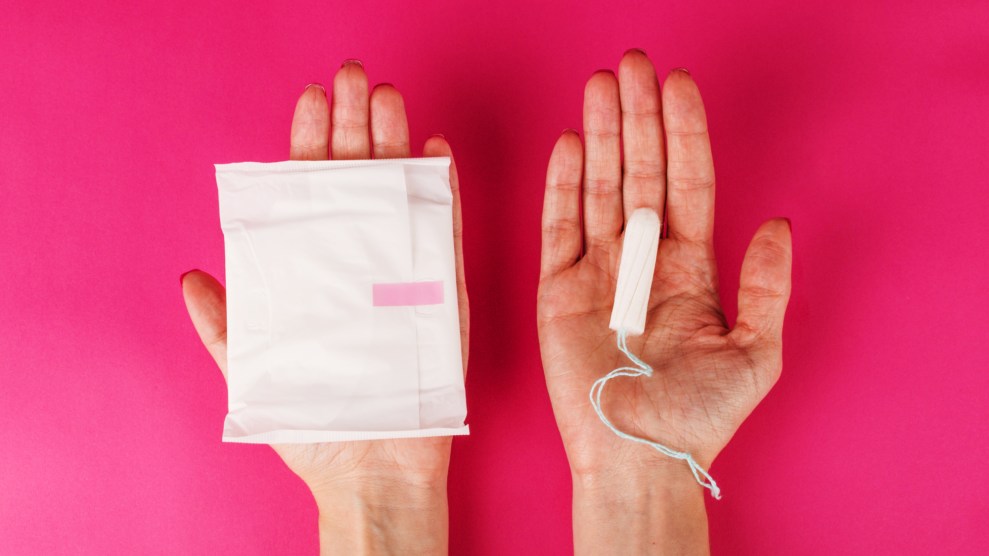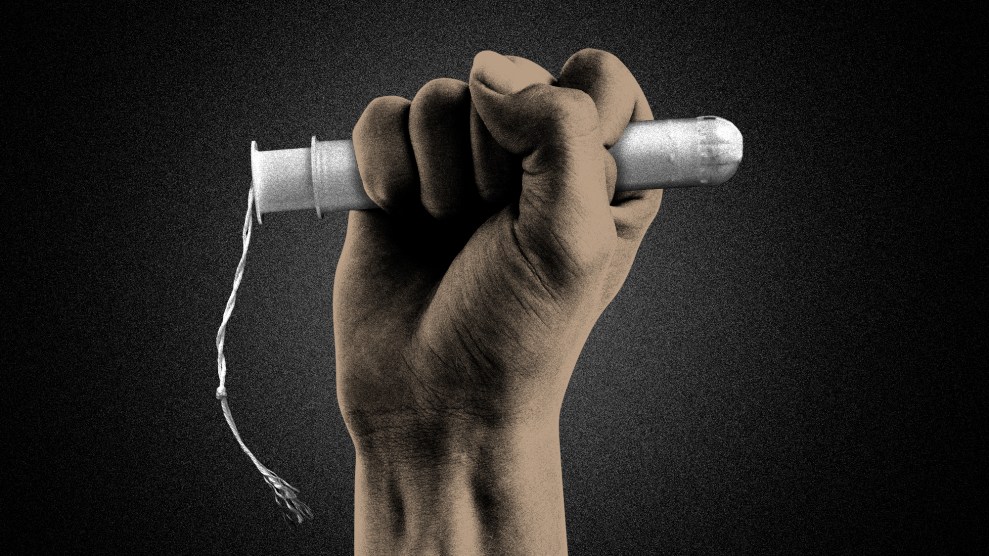
Masanyanka/iStock/Getty
Getting your period in prison can be a kind of hell. Women are the fastest-growing incarcerated population, but in many states, prisons only offer cheap pads that don’t stick or absorb well. Female prisoners often have to fashion their own makeshift tampons out of bedding, clothes, toilet paper, or whatever else they can find. Some get sick from this: Last year, a woman in Maryland told lawmakers that she suffered toxic shock syndrome after using toilet paper as tampons in prison—she ended up needing an emergency hysterectomy.
Women have been sharing horror stories about prison sanitary products for years. In September, a Missouri nonprofit finally decided to quantify just how bad the situation is for inmates in the state. Missouri Appleseed, working with the state Department of Corrections, surveyed 90 incarcerated women, 20 prison nurses, and 20 correctional case managers about their access to sanitary products. The findings were pretty shocking:
- Half of the women said they had to change the free pads they were given at least every half hour on heavy flow days because the pads were so low quality, according to Missouri Appleseed’s Liza Weiss. “Some women had to wear eight pads at a time,” she says.
- 88 percent of women reported leaking blood onto their clothes, their bedding, or the floor.
- 80 percent used homemade tampons, whether made from clothing or the free pads.
- Of these, 28 percent said they’d had a vaginal infection over the past six months.
Better pads and tampons can be purchased in the commissary, a prison’s version of a corner store. But they’re often too expensive. According to a spokesperson from the Missouri Department of Corrections:
- A box of 18 maxi pads with wings costs $5.38 in the commissary. A box of 20 Tampax tampons costs $5.63.
- Missouri prisoners without a high school diploma can make just $7.50 a month in certain prison jobs. Those with a degree earn $8.50 in some jobs. (Higher-paying specialty jobs can pay more than $100 a month, but these are harder to get.) That means that for many prisoners, one box of tampons costs almost as much as a full month’s salary.
The situation is so grim that Missouri lawmakers are now considering a bill that would require prisons to offer free tampons and better-quality pads. “We are completely in favor of providing a wider range of free feminine protection products in our women’s facilities, including two types of pads with wings and two sizes of tampons. At this point, we just need to procure the funding to make it happen,” the spokesperson told Mother Jones. The department estimates it would cost about $171,000 to give free tampons in prisons, assuming that half of the state’s roughly 3,100 women inmates would request them. The department’s total budget is $786 million annually.
The push for better pads and tampons is happening across the country. In 2017, the Federal Bureau of Prisons issued a memo requiring wardens in federal facilities to provide these products for free. (The change at the federal level inspired Missouri Appleseed to launch its survey as a way to see how Missouri’s system stacked up.) Beyond that, Arizona,
In Maine, Republican state Rep. Richard Pickett last month argued against a state bill that would guarantee unrestricted access to pads and tampons in prisons there. He said incarcerated women already had adequate access. “Quite frankly, and I don’t mean this in any disrespect, the jail system and the correctional system was never meant to be a country club,” he added, according to Bangor Daily News reporter Alex Acquisto.
“Imagine you’re a person who has their period inside of a correctional facility,” countered Whitney Parrish of the Maine Women’s Lobby, according to the Maine Beacon. “When you run out, you’re out…You may have no money to go to commissary, and if you do, you may have to weigh that purchase against other necessities, like making phone calls to your children or attorney.”
“Menstrual products,” she added, “are not a luxury item by any means.”

















